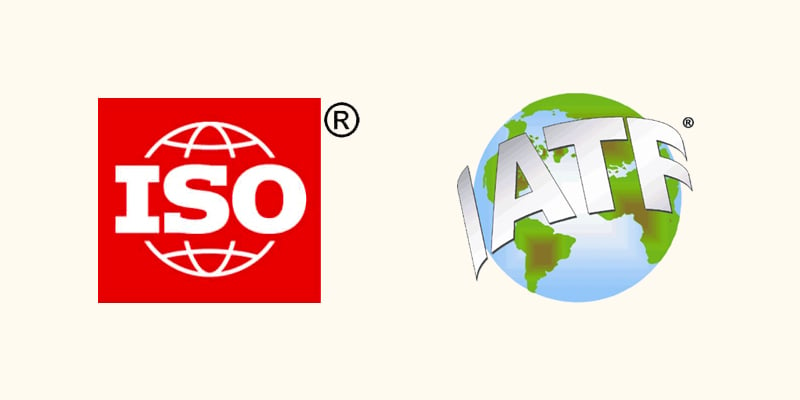The compliance deadline for new benchmarks for automotive industry suppliers and service providers is fast approaching.
The IATF 16949 standard is an updated set of quality management system (QMS) guidelines developed by the International Automotive Task Force. Broadly speaking, the standard describes the elements that firms —including heat treaters like Paulo— must include as part of their QMS if they want to continue doing business in the automotive industry.
Unfortunately for some, tens of thousands of firms are poised to miss the deadline. Fortunately, Paulo is scheduled to meet the standard —and its accompanying customer-specific requirements— well ahead of the deadline.
What is the IATF 16949 standard
IATF 16949 supersedes its precursor, ISO / TS 16949. ISO / TS 16949 was developed to ensure consistency and quality across automakers’ large, complicated supply chains; it represented an automotive-centric take on the broader ISO 9001 standard that set QMS guidelines for an array of industries.
These standards weren’t always necessary. Decades ago, many of the operations preceding final assembly (such as heat treatment) were still carried out in an automaker’s own plant. But as competition increased and margins thinned, automakers slowly began outsourcing these operations. It helped trim costs, but the tradeoff was that it added uncertainty to critical processes that were beyond an automaker’s direct control.
IATF 16949 was developed in partnership with major players in the automotive industry. Because the automotive industry is so comprehensive in the QMS guidelines it wants partners to follow, you can bet other manufacturing sectors will soon require it for their processes, too.
IATF customer-specific requirements
IATF 16949 isn’t a tablet of commandments telling a supplier how to operate. Rather, its guidelines broadly describe characteristics that a firm’s QMS must include before an automotive OEM will consider doing business with it.
IATF customer-specific requirements include these five focus areas:
- Advance product quality planning (APQP) – These are designed to guide a supplier through crafting a product quality plan when new products or services are being developed. OEMs require an APQP regimen to ensure products and services (especially safety-critical items) are developed to meet requirements while minimizing risk.
- Failure modes and effect analysis (FMEA) – The IATF 16949 standard states that complying firms must conduct FMEAs of all manufacturing parts at least once a year. Additional action plans are required for safety-critical items or those with special characteristics. FMEAs show that a supplier has considered potential problems during manufacture and is prepared to solve them.
- Statistic process control (SPC) – Improving parts or services is obviously a worthy pursuit for any OEM, so the IATF 16949 standard spells out how suppliers can apply basic statistical methods to process control and process capability inquiries in the pursuit for continuous improvement.
- Measurement systems analysis (MSA) – These guidelines spell out how suppliers should assess the quality of the systems they use to take process readings on parts.
- Production part approval process (PPAP) – The PPAP ensures that suppliers consistently meet the OEM’s engineering specs at the quoted production rate. Essentially, this shows that an outsourced firm can keep its promises.
In addition to those specific areas, the standard generally guides suppliers in other key areas like internal process auditing, problem solving and contingency planning. At its core, the IATF 16949 standard allows the automotive industry to maintain product and process quality across its vast, complex supply chains.
Committed to QMS excellence
As we stated above, more than 60,000 firms previously certified to ISO / TS 16949 must make the transition to the IATF 16949 standard by Sept. 14, 2018. Most won’t make it in time.
Paulo is on track to receive final approval by May. We’re ahead of the game, and that’s been no easy task. It took over a year to compile the required documentation that IATF needs before even considering our application for certification.
We put in the extra effort because we think compliance with the IATF 16949 standard is more than just a way to secure business from the automotive giants. It’s about sending the message we’ve been sending for 75 years to all industries that we’re committed to developing a QMS that results in assured quality and added value to our customers.
That’s just one of the reasons why an outsourced heat treating partner might be the right fit for you. See more reasons in our guide Heat treating: Best handled in-house or outsourced?



